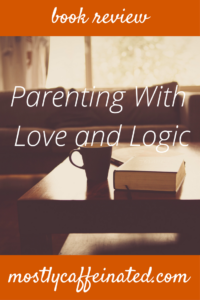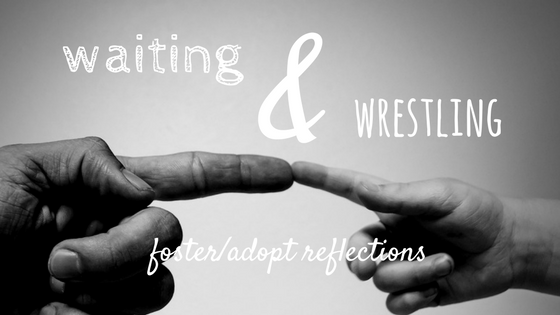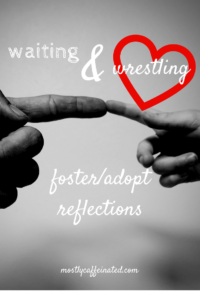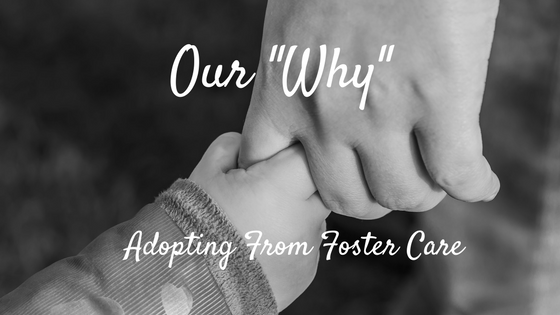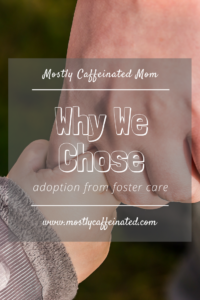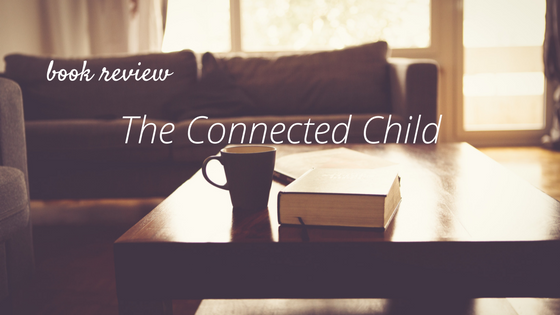Where to begin with this book – simply, I love it.
I’ve read Love and Logic: The Toddler Years earlier this year, and I liked that and have used the methods I learned with my very stubborn 3-year-old. But since adding a 13-year-old to our family, I felt that I needed to read the method as it pertained to older children.
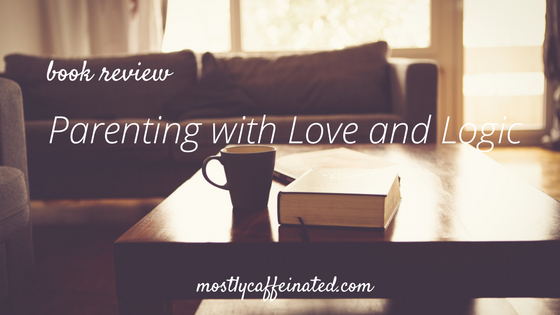
Firstly, about the format of this book. The first half of the book explains the how and why of the Love & Logic method, while the second half is what the authors call “pearls.” Essentially, two-page snippets arranged alphabetically by topic, covering everything from allowances to whining.
I have been convinced since before ever becoming a parent that I would be neither a helicopter parent nor an authoritarian parent. (Thanks to my years as a middle school teacher, I had the benefit of watching many parents try these methods, and end up with non-functional children.) The Love & Logic approach stresses above all else that parents teach and allow their children to make their own decisions and their own mistakes.
This takes so much stress off of the parent, as I have continually reminded myself since finishing this book, “Problems they create for themselves are not your problems.” For example, I provided guidance for my 13-year-old about what might be a good time to set his alarm for, and made sure he knew how to use said alarm. I made certain he understood what time school starts and how many minutes it takes to walk there. If he spends too long in the shower, too long packing his lunch, too long eating his breakfast, and ends up late to school, this is his problem. It is not my problem. He has not affected my life directly. School will hand down a consequence because it affects school, and that will be that.
Likewise with running out of clean laundry (taught him how to do the laundry and gave him a choice of days the washer would always be available.) And leaving his possessions where his little brothers can ruin them (provided with his own room that I keep the little boys out of.) The authors surmise that children don’t care or worry about items and situations that they know their parents are worrying about already.
What a relief!
I can mentally check off dozens of situations and decisions each day that are not my problem. It frees me up to teach, mentor, and bond with my teen instead of constantly nagging.
Let’s be real: the nagging never works, anyway. He would forget things and neglect things whether or not I nagged, so I may as well minimize irritation for both of us and just not nag.
This approach (and all the books on the method) are especially helpful in that they provide a dialogue for speaking to your kids. If a child is very negative, defensive, argumentative, shut down, etc. the books offer actual scripts of how a parent could respond calmly, and still leaving room for the child to make his/her own decisions and feel his/her feelings.
This parenting approach is also unique in that it lives hand in hand with the concept of parent self-care. By lowering stress and helping our children take control of their own decisions and problems, we are taking care of ourselves. It is self care to sometimes say “No” to a child’s request because you’re tired or want to do something else. This parenting approach allows the whole family to be healthy, in contrast to many parenting theories and books that show parents the many ways they could be doing more and more and more to try and guarantee success for their children. It actually equips parents to do LESS, but BETTER.

Available on Amazon (affiliate link)
10/10 Would recommend!
